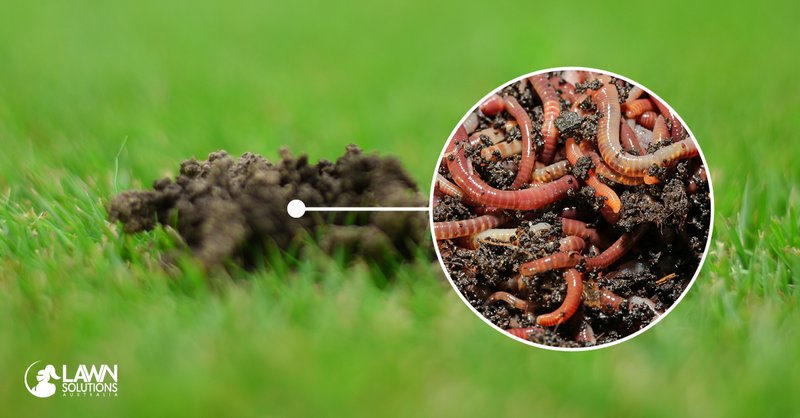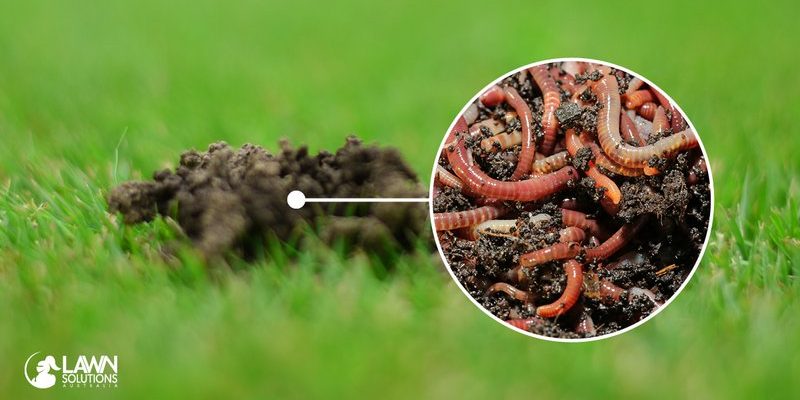
You might be wondering why these squishy worms matter so much. Well, they do a lot more than just wriggle around. They help aerate the soil, improve drainage, and enrich it with nutrients. If you’ve ever wondered about the benefits of earthworms in lawn care or if they’re really as good as people say, you’re in the right place. Let’s dig into the details—pun intended!
Why Earthworms Are Essential for Lawn Health
Earthworms are often referred to as “ecosystem engineers.” Sounds fancy, right? But it’s true! These little creatures play a crucial role in maintaining soil health. When they burrow through the ground, they create channels that help air and water reach the roots of your grass and plants.
Here’s how it works: As earthworms munch on organic matter like dead leaves and decaying plants, they break this material down. Their digestive system transforms it into nutrient-rich castings, which are like nature’s fertilizer. This nutrient-packed soil promotes healthy grass growth, giving your lawn that vibrant green look we all love. In short, earthworms help keep your lawn happy and healthy.
Another benefit is their ability to improve soil structure. The tunnels they create help with water drainage, reducing the risk of puddles and muddy spots in your yard. This means that during heavy rains, your lawn will better absorb moisture rather than becoming waterlogged.
Common Myths About Earthworms
With any natural phenomenon, myths and misconceptions often arise. One common myth is that all earthworms are good for your garden and lawn. While many types are beneficial, not all earthworms are created equal. Some invasive species can actually harm local ecosystems by outcompeting native worms and disrupting soil health. It’s important to know which species are in your area.
Another myth is that you need to add earthworms to your lawn for it to thrive. In reality, many lawns already have a healthy population of earthworms. They naturally come into your yard through methods like composting and maintaining organic matter. So, unless your lawn is severely lacking in them, you probably don’t need to introduce any additional earthworms.
And then there’s the belief that earthworms are only active in moist soil and that they hibernate during dry periods. While it’s true that they thrive in moisture, they have amazing adaptation skills. Earthworms can go deeper into the soil during dry spells, helping them survive in conditions that might seem unfavorable.
How Earthworms Improve Soil Quality
Let’s talk about soil quality. If you think of soil as a sponge, earthworms help it stay healthy. They make sure that sponge is filled with nutrients and well-aerated. When earthworms break down organic material in the soil, they produce a product known as worm castings. These castings are rich in nitrogen, phosphorus, and potassium—key nutrients for plants.
When you look at your lawn, you might want to consider the importance of this nutrient cycling. Nutrient cycling is a natural process where nutrients are reused in the environment. Earthworms facilitate this by breaking down materials and returning those nutrients to the soil. This natural process enhances the overall fertility of your lawn, allowing for lush, green grass to flourish.
Additionally, the presence of earthworms helps increase the soil’s microbial activity. Microbes are tiny organisms that help decompose organic matter. More microbes mean a healthier soil ecosystem. So when you see an earthworm, you can rest easy knowing they are doing their part to keep your lawn vibrant and healthy.
Tips for Encouraging Earthworms in Your Lawn
Now that you understand why earthworms are so valuable, you might be wondering how to attract more of them to your lawn. **Here are some simple tips**:
- Compost regularly: Composting is one of the best ways to attract earthworms. They love breaking down organic matter, so adding compost to your lawn can boost their population.
- Avoid chemical fertilizers: Chemical fertilizers can harm earthworm populations. Opt for organic fertilizers that are friendly to soil life.
- Keep your lawn mulched: Mulch provides food and improves moisture retention in the soil, creating a welcoming environment for earthworms.
- Water wisely: Overwatering can create unfavorable conditions for earthworms. Aim for a balance that keeps the soil moist but not soggy.
By implementing these practices, you can create a healthy habitat that encourages earthworms to thrive in your lawn.
Earthworms truly are the unsung heroes of lawn care. They aerate the soil, enrich it with nutrients, and improve overall soil quality. Despite some myths, understanding the role of these little creatures can help you harness their benefits for a healthier lawn. By taking simple steps to encourage earthworm populations, you’re investing in the long-term health of your yard.
So next time you see an earthworm wiggling through the soil, remember—you’re looking at nature’s very own lawn care expert! Embrace them, and watch your lawn transform into a thriving green oasis. Happy gardening!

